Environment
-
 Health & Medicine
Health & Medicine50 years ago, noise was a nuisance (it still is)
In 1966, scientists warned of the physical and psychological dangers of a louder world.
-
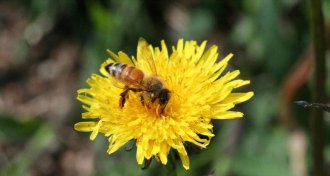 Animals
AnimalsBees take longer to learn floral odors polluted by vehicle fumes
Car and truck exhaust mingling with a floral scent can slow down the important process of honeybees learning the fragrance of a flower.
By Susan Milius -
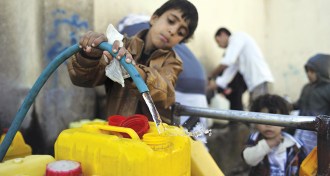 Environment
EnvironmentNew desalination tech could help quench global thirst
Designed with better, more energy-efficient materials, next-generation desalination plants may offer a way to meet the world’s growing need for freshwater.
-
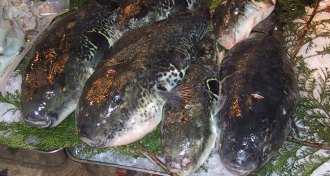 Oceans
Oceans50 years ago, humans could pick the oceans clean
Scientists have long recognized that we might overfish the oceans. Despite quotas, some species are paying the price of human appetite.
-
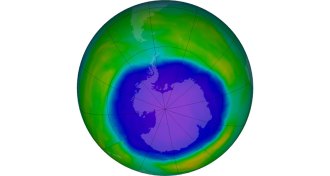 Climate
ClimateDespite volcanic setback, Antarctic ozone hole healing
The September extent of the Antarctic ozone hole has shrunk by about 4.5 million square kilometers since 2000, thanks in large part to the Montreal Protocol.
-
 Climate
ClimateWorld will struggle to keep warming to 2 degrees by 2100
Current plans to curb climate change aren’t ambitious enough to limit global warming below 2 degrees Celsius by 2100, new research shows.
-
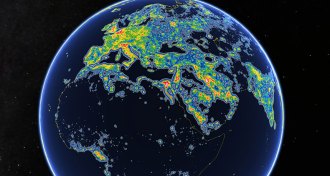 Earth
EarthA third of the population can’t see the Milky Way at night
Light pollution conceals the Milky Way’s star-spangled core from more than a third of Earth’s population, a global atlas of artificial sky luminance reveals.
-
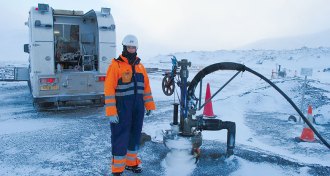 Climate
ClimateVolcanic rocks help turn carbon emissions to stone — and fast
A pilot program in Iceland that injected carbon dioxide into basaltic lava rocks turned more than 95 percent of the greenhouse gas into stone within two years.
-
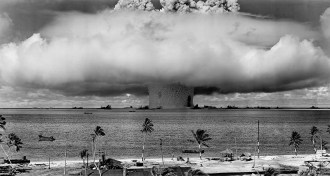 Environment
EnvironmentBikini Atoll radiation levels remain alarmingly high
Lingering radiation levels from nuclear bomb tests on Bikini Atoll are far higher than previously estimated.
-
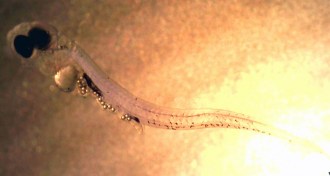 Animals
AnimalsTiny plastics cause big problems for perch, lab study finds
Researchers have linked microplastics to feeding behavior changes and development issues in Baltic Sea perch.
-
 Environment
EnvironmentTiny plastics cause big problems for perch
Researchers have linked microplastics to feeding behavior changes and development issues in Baltic Sea perch.
-
 Environment
EnvironmentDeepwater Horizon oil spill caused months-long ‘dirty blizzard’
Pollution from the 2010 Deepwater Horizon oil spill accumulated on the seafloor for months after the leak was patched.